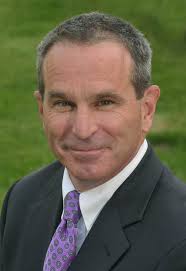
Robert Bryce
- Called “a visionary” and “a revolutionary” by The New York Times
- Provides insight into the global economy
- Uses extensive knowledge to debunk energy myths
- Senior fellow at the Manhattan Institute
Travels From
Texas
Robert Bryce at The Resurgent Gathering in Austin (2018)
Robert Bryce, Debunking Four Energy Myths in Fifteen Minutes or Less
Robert Bryce Speaker Biography
Power Hungry: The Myths of Green Energy and the Real Fuels of the Future
The fuels of the future can be described as N2N: natural gas to nuclear. Regardless of what you think about peak oil or global warming, natural gas and nuclear are the fuels of the future because they can provide significant quantities of the energy that the world needs and do so using a small environmental footprint. Further, they are the low-carbon alternative to coal.
Although renewable energy sources are getting lots of hype, there is simply no way that they can provide the scale of energy that the global economy demands. Global energy demand now totals about 226 million barrels of oil equivalent per day. Renewable energy sources may be growing fast, but they cannot, will not, replace a substantial portion of our hydrocarbon consumption during our lifetimes.
Hydrocarbons are here to stay. Canada has built a $1.4 trillion-per-year economy (and the US a $14 trillion-per-year economy) that is based on hydrocarbons: coal, oil, and natural gas. We cannot - and will not - quit using carbon-based fuels for this simple reason: they provide the power that we crave. Nine out of every 10 units of energy we consume come from hydrocarbons.
The Shale Gas Revolution has fundamentally changed how Canada, the US, and the rest of the world should be thinking about gas. And those changes are only now beginning to be understood.
A Question of Power: Electricity and the Wealth of Nations
In this talk, based on his forthcoming book of the same title, Robert Bryce will explain why electricity has transformed humanity like no other form of energy. Despite its transformative power, some 3 billion people are still living in places where per-capita electricity use is less than what’s used by an average American refrigerator. Closing the enormous gap between the electricity rich and the electricity poor will affect everything from women’s rights and health care to warfare and climate change. Bryce will discuss the fastest-growing sources of new electricity demand – Big Tech and Big Cannabis – and explain the factors that are needed to supply reliable and affordable electricity. He will also spotlight the fuels that will power the electric grids of the future and explain why, in the 21st century, power equals power. (A Question of Power: Electricity and the Wealth of Nations will be published in March 2020 by PublicAffairs).
Renewable Dreams, Hydrocarbon Realities, and the Fuels of the Future
Whether it’s the Green New Deal or the dozens of cities that have pledged to get all of their electricity from renewables, there’s no doubt that solar and wind energy are enormously popular. In this talk, Robert Bryce will explain why renewables alone cannot meet burgeoning global energy demand. He will provide a clear-eyed look at the vast scale of our energy and power systems and explain why, despite concerns about climate change, oil, coal, and natural gas are likely to continue dominating global energy markets for years to come. In addition, Bryce will examine the macro trends in the energy sector, including the surge in solar, the booming global trade in LNG, electric vehicles, the relentless growth in electricity demand, and why we should be optimistic about our energy future.
Economic Growth, Climate Change, and the Innovation Imperative
Economic growth and energy consumption are inextricable. Energy use fuels economic growth and economic growth turbocharges energy demand. That’s particularly true for global electricity demand which is now doubling every 20 years. Oil demand keeps growing, too: It’s up by 15 percent over the past decade alone. In this talk, Robert Bryce will discuss the world’s insatiable demand for energy and how that demand is complicating efforts to address climate change. He will also look at the future and examine the technologies and fuels – including nuclear energy – that will be needed to meet the world’s insatiable energy demand. Finally, he will explain why ongoing innovation in every aspect of the energy and power sectors – from batteries and solar panels to internal combustion engines and fission reactors – will be needed to address climate change and improve living standards.
Smaller Faster Lighter Denser Cheaper: How Innovation Keeps Proving the Catastrophists Wrong
For decades, even centuries, we have been repeatedly warned that we are headed for disaster. Indeed, since the days of Thomas Malthus, we’ve been told that we are using too much of everything and that catastrophe looms. But the prophets of doom continually overlook an obvious fact: More people are now living longer, freer, healthier lives than at any time in human history. In this talk, Robert Bryce will show how ongoing innovation in everything from energy extraction and mobile phones to agriculture and engines is raising living standards all over the world. No one told inventors or entrepreneurs to make things smaller, faster, lighter, denser, and cheaper. Instead, they have been doing that on their own. The result of this continuing innovation: poverty and disease are on the run all over the world. If you need a dose of optimism, one that will inoculate you against the endless doom and pessimism that dominates the daily news, this talk is the one for you
















